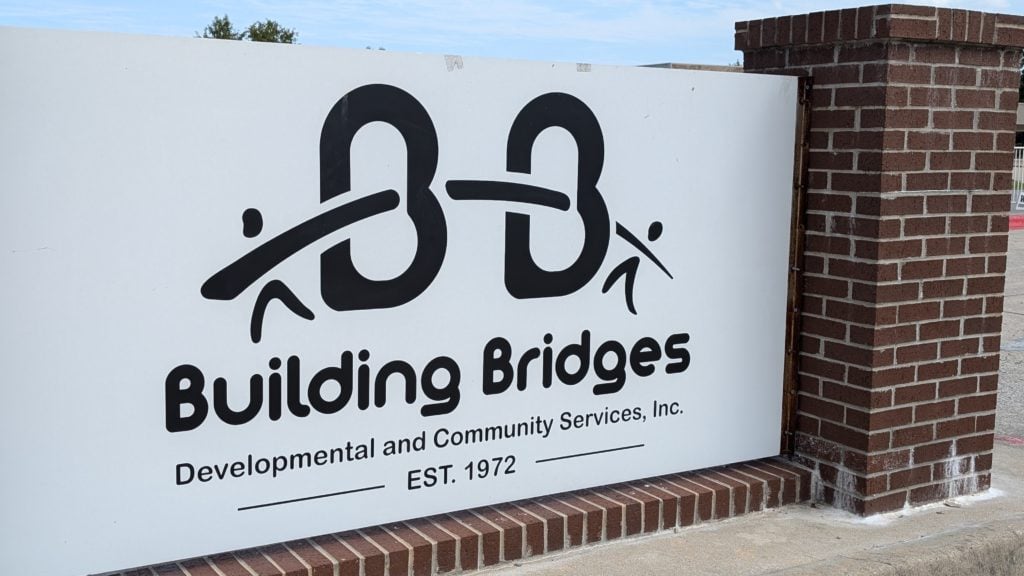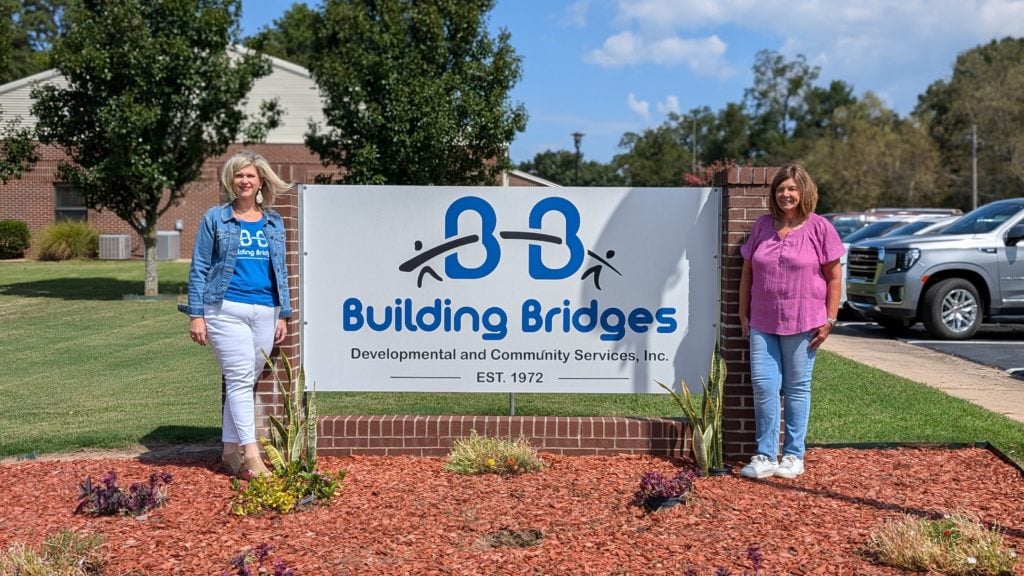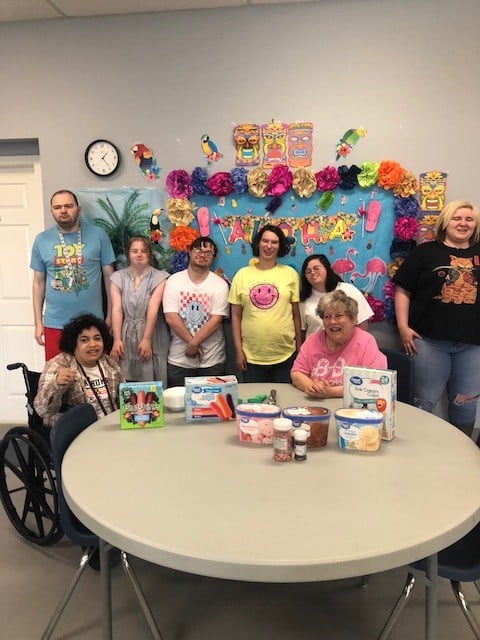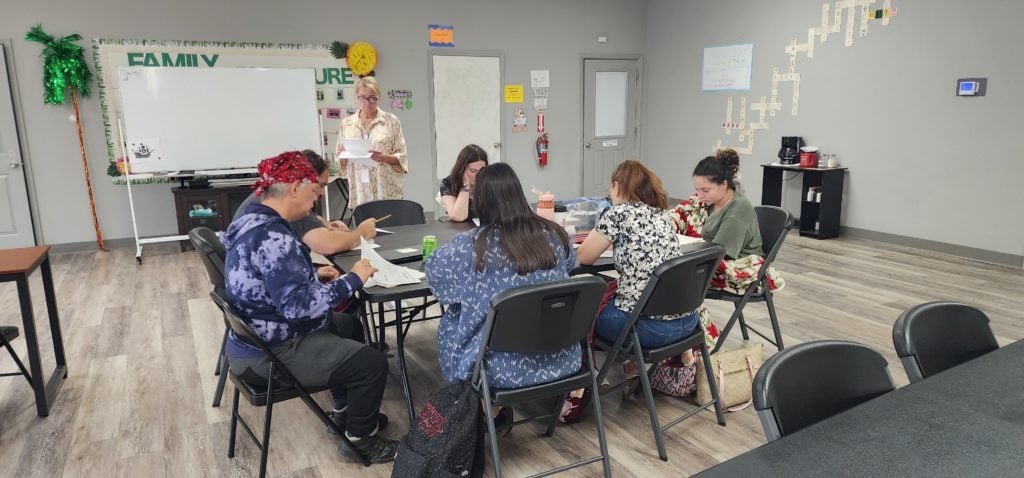Cover photo credit: Building Bridges

Community Spotlight: Building Bridges Developmental and Community Services
For over 50 years, one organization has been shaping the lives of families in Cabot, Lonoke, and beyond. With services that range from early childhood education to adult programs for individuals with intellectual and developmental disabilities, Building Bridges Developmental and Community Services has become a cornerstone in the community, offering a lifeline for families who might otherwise struggle to find support. The dedicated team behind this organization is focused on providing local services for local people, building a network of care that meets the needs of all generations.
“It all started with families and local community members,” said Janie Sexton, Executive Director of the non-profit. “If the parents wanted any kind of service for their family member, they had to drive to Little Rock. Over time, people realized we needed something local to support their family members.”

Since its humble beginnings, the organization has grown into a crucial part of life for families in Lonoke County. With programs that span the lifespan—from early childhood intervention to adult services and job training—the organization provides a pathway to independence, health, and a sense of community for people with intellectual and developmental disabilities.
From left: Laura Haywood and Janie Sexton.
One of the most significant barriers for families and individuals with disabilities is access to reliable transportation. For families already stretched thin by the demands of caregiving, the challenge of transporting loved ones to daily services can be overwhelming.
“We provide transportation to bring them in every day because many of our families couldn’t bring their child to services every day due to the cost of gas and everything,” Sexton explained. “For many of our clients, public transportation isn’t an option, and without us, they’d miss out on essential services.”
This access to transportation allows children in their preschool program to receive early intervention therapies, like physical, occupational, or speech therapy, which are crucial for their development. It also means adults enrolled in the program can attend job training sessions, participate in social activities, and receive necessary care.
“I know, because I’ve been here so long, that people I may have been the [occupational therapist] for are now coming back to our adult program if they still need that level of service,” Sexton said. “It’s a support for their lifetime, to the end of their life.”
For adults, the non-profit offers a variety of services aimed at improving independence and quality of life. Participants learn valuable life skills, like managing money, maintaining a household, and navigating the healthcare system. These programs also provide much-needed respite for families, giving caregivers time to work or take care of personal needs, knowing their loved one is in good hands.
“They come here to learn independent living skills,” Sexton said. “They have opportunities for socialization. We make sure they learn about healthy lifestyles. We make sure they’re getting to their doctor appointments… We also have a lot of fun activities. A lot of times people with intellectual disabilities are pretty confined to their house if they don’t have opportunities to go out in the community, so we provide that.”

Photo credit: Building Bridges
One of the organization’s flagship programs is its employment readiness training, designed to help adults with disabilities find employment in the community. Through this program, individuals receive hands-on experience in real-world job settings, from local restaurants to hardware stores, learning the skills necessary to succeed in the workplace.
“Many of those in our employment program are probably going to end up living on their own one day. So we talk about things like, ‘What do you do when you start getting a paycheck? It’s not just go and blow all your money. You might have bills. How much does it cost to rent an apartment or buy a house?’ Just those basic life skills,” Sexton said. These are essential life lessons that not everyone receives in high school or at home, but they are necessary for true independence.
For high school juniors and seniors, the organization offers a pre-employment transition program, supported by Arkansas Rehab Services, which allows students to gain real-world job experience through paid internships. These programs provide a bridge for young adults as they transition from school to independence, equipping them with the skills and confidence they need to succeed.

Photo credit: Building Bridges
Like any non-profit, Building Bridges faces its own set of challenges. A major one, according to Sexton, is funding. The majority of their services are funded through Medicaid, but not everything is covered, and fundraising is essential to filling in the gaps. Uncompensated care is a reality the organization must navigate, especially after the COVID-19 pandemic, which forced many families to reapply for Medicaid and left some without coverage.
“Some of the situations people are in, they did not get reapproved—sometimes it’s just a paperwork issue—and so we provide quite a bit of uncompensated care. If they need the service, we’re going to be there to provide it, but not everything is funded by Medicaid,” Sexton explained.
One of their most successful events is their annual fall fundraiser, which has shifted from a formal banquet to a more casual art and food showcase with a new title: “Taste and Talent.” Coordinated by Laura Haywood, the Development Coordinator for the organization, the event will feature pieces donated by local artists up for auction, and attendees can sample food from local restaurants. Proceeds from events like these go directly to supporting the services that make such a difference in the lives of families.
Haywood shared her own story of how the organization helped her son, who was diagnosed with ADHD and placed on the autism spectrum. “Had we waited and not had the opportunity for him to get the help that he needed at that time, we would have had a much harder time when he started school,” she said. “Now, he’s a thriving third grader.”
The non-profit is always looking for ways to get the community involved, whether through donations, attending their fundraisers, or even volunteering. For those interested in supporting their mission, there are multiple opportunities to contribute, from donating funds to helping with Special Olympics events.
“We have so much support from the community already,” said Sexton. “But there’s always more we can do with a little extra help. Whether it’s helping us raise money for new technology for our clients or just showing up to support our fundraisers, it all makes a difference.”
For over five decades, this organization has been a beacon of hope for families in Cabot, Lonoke, and beyond. With a focus on lifelong care, they continue to grow and expand their services, all while remaining deeply committed to their local community. As they look toward the future, they hope to continue making a positive impact for generations to come.
Featured Place
Building Bridges Developmental and Community Services
207 Plaza Blvd
Cabot, Arkansas 72023
(501) 628-5580

